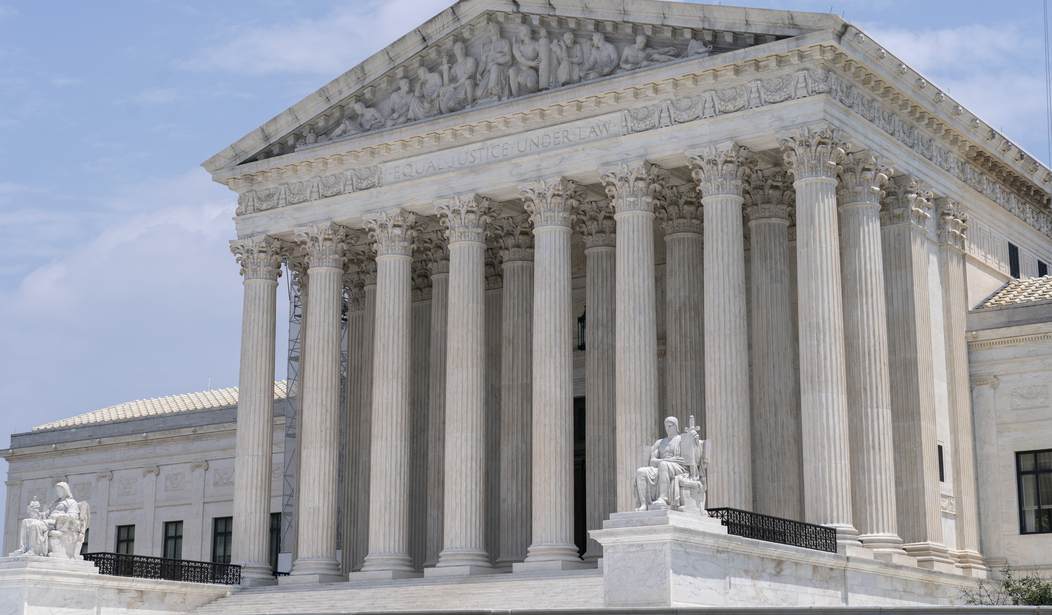It’s no secret that, under the Biden administration, federal agencies have exhibited aggressive behavior. From the Federal Trade Commission's recent push to ban non-compete clauses for businesses to a new worker classification rule announced in January by the Department of Labor, federal agencies have increasingly demonstrated a willingness to push the boundaries of their regulatory authority. The result has been an ever-expanding administrative state where thousands of new rules and regulations are created annually, with little regard for their impact on American consumers, taxpayers, and businesses.
However, a Supreme Court of the United States (SCOTUS) decision expected later this summer threatens to reverse that trend and rein in these wayward agencies. If this occurs, federal agencies will have played a pivotal role in undermining their power by giving SCOTUS the ammunition needed to scrap a legal doctrine they have routinely used to flaunt constitutional checks and balances. It is in their interest to self-correct and return to their original statutory missions, free from the political activism that has recently defined their actions.
One of the cases in question is Loper Bright Enterprises et al. v. Raimondo and it revolves around a legal dispute between the National Marine Fisheries Service (NMFS) and herring fishermen. In 2020, the NMFS implemented a new rule requiring fishermen to compensate federal inspectors who monitor fish intake on their ships. Believing this requirement to be excessive and financially burdensome, several family-owned and operated fishing companies sued the agency, asking SCOTUS to weigh in on the new rule and overturn a nearly 40-year-old legal doctrine, known as the Chevron doctrine. What makes the case particularly noteworthy, is that SCOTUS has not only agreed to hear it but also agreed to weigh in on its constitutional merits. This is great news for Americans, who are far too often the biggest victims of poorly designed regulations.
Recommended
The Chevron doctrine, or Chevron deference, is a legal doctrine established in the 1984 court case Chevron U.S.A. v. Natural Resources Defense Council. The doctrine holds that the courts must defer to federal agencies' interpretation of the law whenever the law in question is vague or ambiguous. At the time of its creation, SCOTUS reasoned that federal agencies were better positioned to understand the purpose of a statute than the judiciary. The doctrine’s only limitation was that federal agencies must interpret statutes in a “reasonable” manner.
In practice, this has proven to be a disaster. Federal agencies frequently use the doctrine to interpret statutes in a way that suits their regulatory agenda. Worse, this usually comes at the expense of Congress, which never intended for federal agencies to undercut its role as the chief rule-making branch of government. While Congress has the power to delegate responsibility to agencies, the lack of explicit language on a given statute does not permit agencies to interpret things in any way they see fit. Nor does it give them license to supplant the courts on all matters of legal interpretation simply because statute language is sometimes ambiguous.
Yet, time and again, this is precisely what happens. For instance, the Federal Communication Commission has previously cited Chevron to justify imposing regulations on new technologies not addressed by old statutes. Other agencies have also leaned on Chevron to justify new expansive interpretations of the law, such as last year when the Environmental Protection Agency (EPA) proposed new carbon pollution standards under the Clean Air Act. Fortunately, that may be about to change.
During recent oral arguments for Loper Bright, most justices seemed to signal that the Chevron doctrine’s days may be numbered. For instance, Brett Kavanaugh stated that Chevron “ushers in shocks to the system every four or eight years when a new administration comes in” and is a constant point of legal uncertainty. Samuel Alito observed that in cases that don’t directly involve federal agencies, the courts have no problem interpreting a statute's meaning, questioning the need for federal agencies to defer to agency interpretation. Chief Justice John Roberts also noted that the doctrine hadn’t been invoked in several years, wondering whether it had already been “overruled in practice.”
If SCOTUS does away with the Chevron doctrine, or at least curtails its influence, there could be a seismic shift in the power of the regulatory state. SCOTUS has already begun chipping away at this power through recent rulings. In West Virginia v. EPA, the Court strongly hinted, through its clarification of the major questions doctrine, that federal agencies must be able to point to “clear congressional authorization” when pursuing regulatory action. Overturning Chevron would be consistent with this reasoning and provide more evidence that SCOTUS is serious about combatting federal overreach.
While what ultimately becomes of Chevron remains an open question, federal agencies should use this opportunity to recenter themselves and their mission. In their attempts to tackle some of today’s biggest challenges, many have lost sight of their original purpose and need to return to the basics of protecting consumers from harm. It’s time for them to return to that mission and regain public trust.

























Join the conversation as a VIP Member